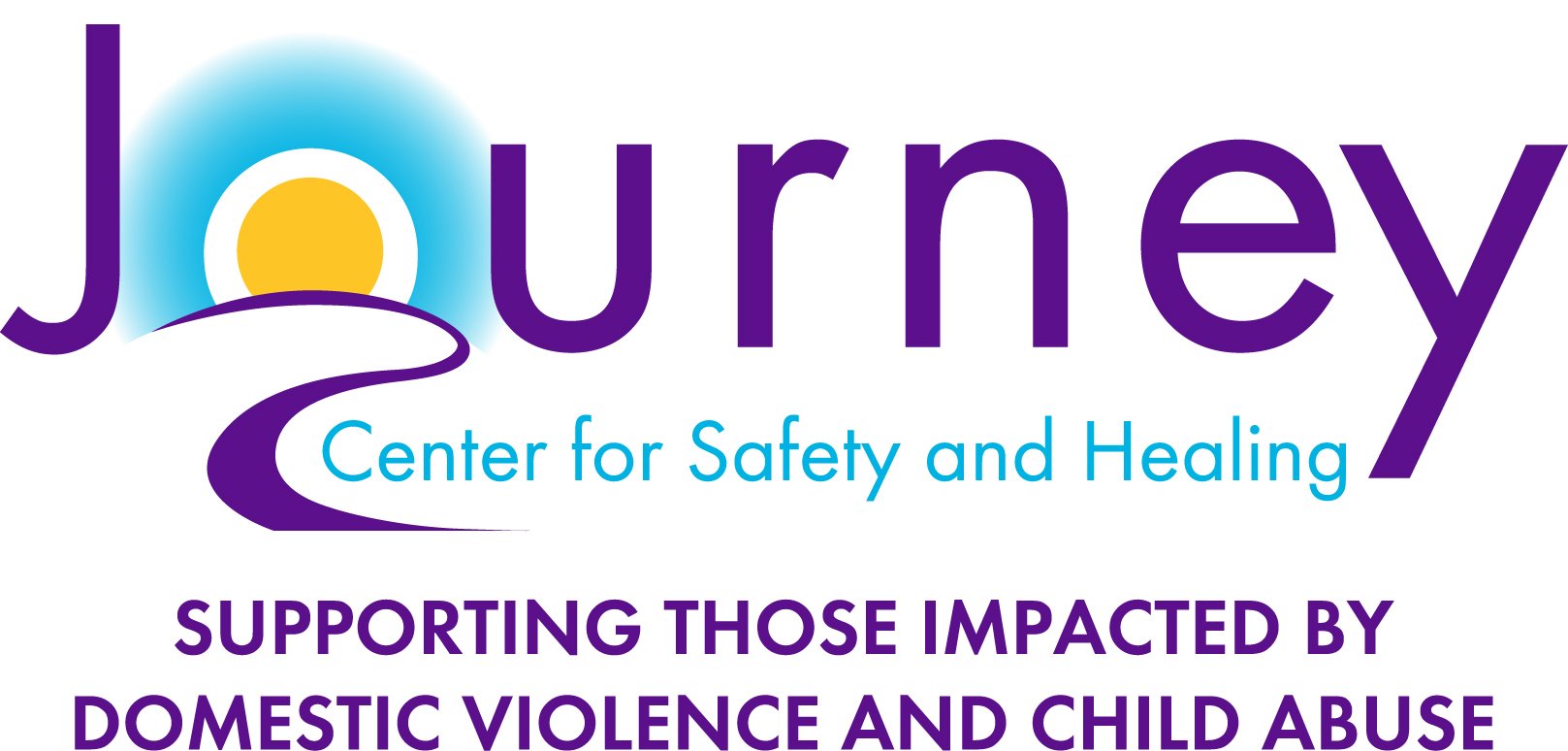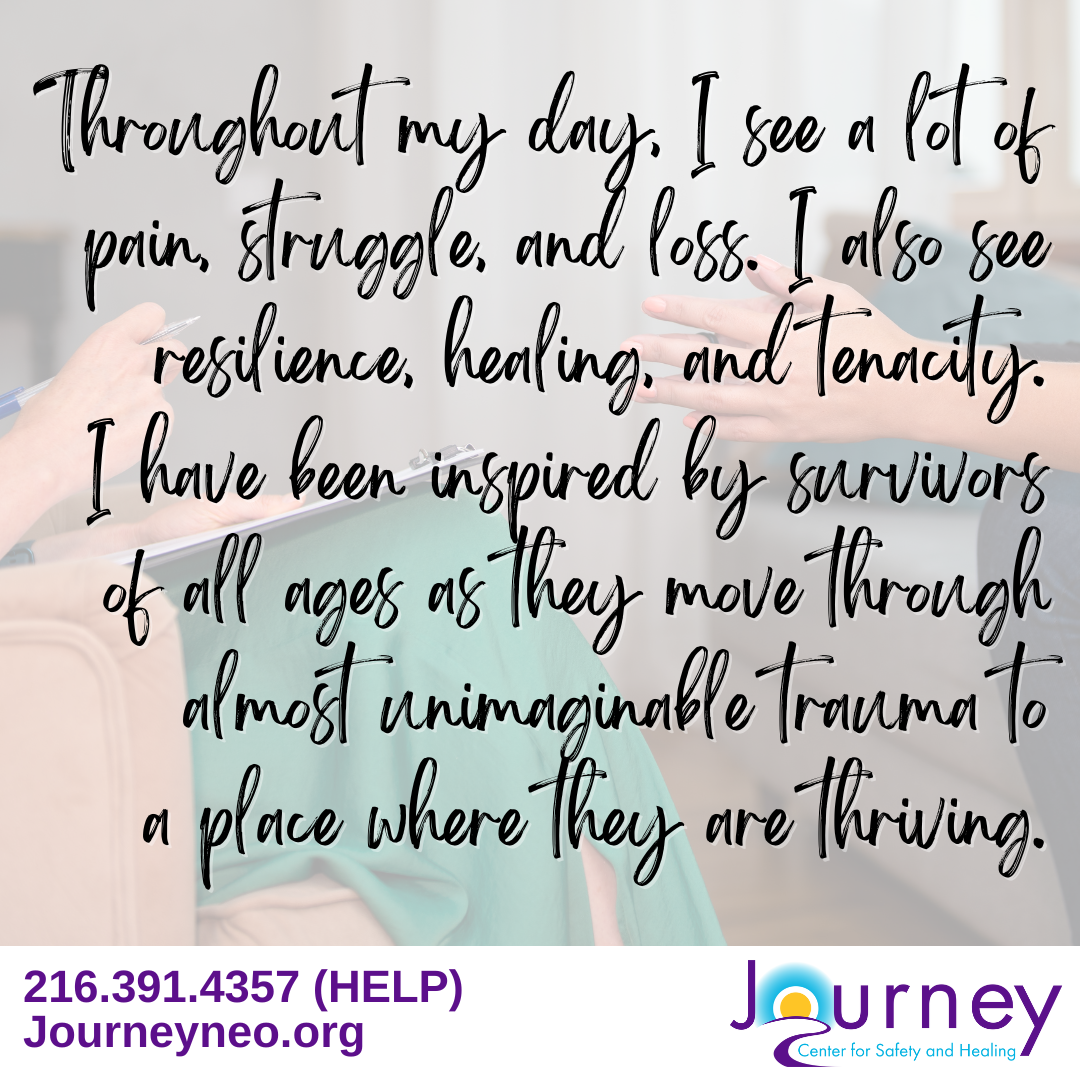As a Justice System Advocate my job is to help victims and survivors of domestic violence and child abuse navigate the legal process. My goal is to make the process of a criminal case slightly less daunting and advocate for the survivor’s desired outcome.
Read MoreHealing can feel overwhelming but remember you don’t have to do it all at once. It’s important to take it one day at a time. Each morning, set a small intention or goal for your day. This simple habit can help give you focus and purpose.
Read MoreAs a Trauma Therapist, I aim to create a safe, non-judgmental environment for clients to process their trauma. Each day is different, but my passion for the work and the ongoing growth with my clients remain constant.
Read MoreFinancial abuse occurs when one partner uses finances or resources to control or manipulate the other. This form of abuse may not leave visible scars, but its impact can be just as severe. Understanding the signs of financial abuse is crucial for teens trying to build healthy relationships or those who may find themselves in unhealthy ones.
Read MoreSexual abuse is when someone persuades, forces, or coerces their partner to engage in sexual activity—for any reason. It can happen in many ways, and it's important to know that it is never acceptable.
Data from CDC's Youth Risk Behavior Survey in 2021 indicated that among U.S. high school students who reported dating during the 12 months before the survey about 1 in 10 experienced sexual dating violence.
Read MoreVerbal and emotional abuse includes a range of non-physical behaviors that an abusive partner uses to manipulate or control you. This can include insults, threats, constant criticism, or belittling comments that aim to damage your self-esteem and sense of self-worth. The intention behind these actions is to gain power and control over you, often instilling a sense of fear.
Read MoreFebruary is Teen Dating Violence Awareness Month, and it's an important time to talk about an issue many teens face today: digital abuse. This type of abuse happens when someone misuses technology to bully, harass, stalk, or intimidate their partner.
Read MoreStalking is a serious issue that can create an environment of fear and uncertainty. If you have a loved one experiencing stalking, your support can make a significant difference in their Journey toward safety and healing.
One of the most important things you can do is believe and validate their experiences.
Read MoreStalking is a pattern of repeated, unwanted attention, harassment, or contact that makes someone feel afraid or unsafe. This can take many forms, from constant phone calls and texts to following someone, sending unwanted gifts, spreading rumors, or even showing up at a person's workplace or home.
The impact of this behavior can reach into every aspect of a person's life…
Read MoreUnderstanding the tactics that a stalker may employ is necessary for recognizing and addressing stalking behavior. While some stalking behaviors may not be illegal when evaluated in isolation, they become alarming when viewed as a repeated pattern that leads to significant changes in the victim's daily life. Stalking can take many forms, and knowing the tactics can empower individuals and communities to respond effectively.
Read MoreBeing an advocate is a unique experience to see the people I work with grow through their process. Domestic violence is not something easy to talk about with family or even friends, but our Support Group offers what they need when they need it, and provides an environment for each person to share their experiences or concerns.
Read MoreStalking is defined as a pattern of behavior directed at a specific person that would cause a reasonable person to feel fear. It often involves a series of actions that may seem harmless to outsiders but hold a deeper, more threatening meaning for the victim. In Ohio, a pattern is recognized as two or more incidents that are closely related in time.
Read MoreAt Journey Center, we believe that everyone deserves to live in a safe environment, free from fear and abuse. Our mission aligns perfectly with the White Ribbon Campaign, which is the largest global initiative focused on men working to end violence against women. Together, we are committed to making a significant impact by promoting awareness, education, and community engagement.
Read MoreOur 24-Hour Helpline, and Helpline Advocates are, - first and foremost - a space where survivors can go to seek safety, receive emotional support, and connections to resources. As Helpline Advocates, we actively listen to an individual’s story to help determine how we can best work with them and their unique needs and circumstances.
Read MoreThe holidays can be a bittersweet time for many, but for survivors of domestic violence, it can be particularly challenging. It's essential to prioritize your well-being during this season. Here are some tips to help you navigate the holidays with resilience and strength.
Read MoreYouth Advocates provide daily groups and activities for children in our Shelter, providing an opportunity to feel safe while residing Shelter and learning healthy skills to cope and process their experiences. Groups include a Journaling Group, Homework Club, Open Art Studio, Music Exploration, and Sensory Group. Additionally, Youth Advocates plan birthday parties for all children, and have a “Ticket Store” for youth, which is an opportunity for children to earn tickets and make a purchase at the “Ticket Store”.
Read MoreIn a world that often prioritizes productivity over well-being, the concept of self-care can feel like a luxury rather than a necessity. While it may seem simple, many find it challenging to prioritize self-care. Let’s explore why self-care is important and how you can incorporate it positively into your life.
Read MoreWhether someone is in their relationship, has left, or is unsure what steps they will take—we are here. However, friends and family are an important support as well. How can you provide support to someone you love and care about?
Read MoreVictims stay for a variety of reasons; and it’s important to remember that their decision-making process often involves numerous factors rooted in fear, love, hope, and survival. Understanding these dynamics is necessary for supporting survivors and encouraging a more caring and supportive conversation about domestic violence.
Read More









